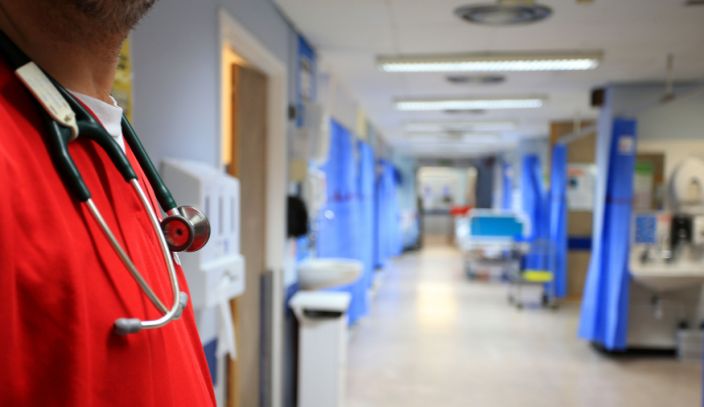If current trends continue, annual spending on outsourcing could exceed £400 million by 2028, enough to fund 3,389 full-time consultant radiologists.
In 2024, nearly one million patients in England waited for more than a month for the results of their scan, according to new analysis by the Royal College of Radiology (RCR), the professional body representing clinical radiologists and oncologists.
A record 970,000 scans missed the one-month target, a 28 percent increase compared to the previous year. The RCR notes how this backlog comes despite almost every radiology department in the UK now outsourcing some of its workload, mainly to address severe staffing shortages. The NHS currently faces a 30 percent shortfall in clinical radiologists, while demand for CT and MRI scans rose by 8 percent in 2024.
In response, NHS trusts and health boards across the UK spent £325 million in 2024 to manage excess demand, with £216 million of that going to private teleradiology companies. This represents a 24% increase in just one year and is more than double pre-pandemic levels.
The RCR warns that while outsourcing may relieve immediate pressure, it is “failing to fix the root cause and is becoming financially unsustainable.” If current trends continue, annual spending on outsourcing could exceed £400 million by 2028, enough to fund 3,389 full-time consultant radiologists.
The organisation is urging the government to redirect funding toward long-term solutions, including training more radiologists and investing in technology to improve reporting efficiency.
Dr Katharine Halliday, president of the Royal College of Radiologists, described current spending on outsourcing as a “false economy,” highlighting it as a symptom of the UK’s failure to train and retain sufficient NHS radiologists.
“We must plan for the long-term, training the workforce we need to meet demand while embracing solutions that can boost our productivity so that patients no longer face such agonising waits for answers,” she said.
Earlier this year, the government pledged private hospitals would provide an additional one million NHS appointments, scans and operations a year, in an effort to reduce the backlog. Keir Starmer announced that private operators would receive an extra £2.5bn a year in government funding, taking the total to almost £16bn, if they deliver the uplift in care and treatment the prime minister outlined.
The health secretary Wes Streeting defended the growing reliance on private sector, arguing that the independent sector must help reduce waiting times without diverting NHS resources.
“I’m entirely pragmatic about this … The independent healthcare sector isn’t going anywhere, and it can help us out of the hole we’re in. We would be mad not to,” he said.
However, his comments sparked criticism. The Centre for Health and the Public Interest, which monitors NHS privatisation, said Streeting was talking “utter nonsense” about the private sector providing extra capacity because almost all the doctors it uses to perform operations are NHS staff.
“Put simply, private hospitals are unable to deliver any operations without using NHS consultant surgeons or anaesthetists. Letting NHS consultants do the easy work in the private sector starves the NHS of both staff and income,” the organisation said.
Left Foot Forward doesn’t have the backing of big business or billionaires. We rely on the kind and generous support of ordinary people like you.
You can support hard-hitting journalism that holds the right to account, provides a forum for debate among progressives, and covers the stories the rest of the media ignore. Donate today.




